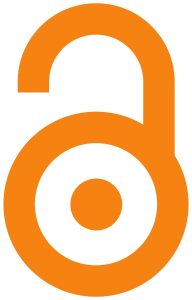
Last week was Open Access Week! Between October 22nd and October 28th, OA supporters across the Triangle celebrated with speaking events, workshops, and movie screenings.
When I first heard about OA Week, a question came to mind. Maybe you’re wondering, too: What does Open Access have to do with the Digital Humanities?
I’d seen enough Creative Commons licenses on Digital Humanities projects to know there was some connection between OA and DH. I just didn’t know what that connection was. In honor of OA Week, I decided to do some digging.
It seems to me that there are two ways to consider the relationship between OA and DH.
Early in my search, I noticed something interesting: every source I consulted was Open Access. Sure, I expect books about OA to be OA themselves, but most of my Digital Humanities books were freely available too. (I’ll link to my sources throughout this post, if you want to take a look.)
This is no coincidence, and it brings me to my first point: In some ways, the relationship between DH and OA is cyclical. Many DH projects rely on OA materials, and these projects are OA in turn.
To be fair, this is a little simplistic. Exactly how much either OA or DH matters to you depends on where you are in this cycle. Some projects don’t use OA materials at all. Their creators may not know or care about OA, at least in the short term. On the other side of things, OA supporters might be more concerned with doing public good than with how one group of scholars benefits from their advocacy.
Still, DH does benefit from OA materials. The authors of The Digital Public Domain, Melanie Dulong de Rosnay and Juan Carlos De Martin, recognize this. They discuss how digital technologies are “transforming research in science and scholarship in history, literature, and the arts.” DH is a part of this, and “can reveal unexplored patterns and trends by analyzing unprecedented amounts of data.”
Digital Humanists can mine OA texts, visualize open data sets, use open images in multimedia projects, and more. And when they’re finished, Digital Humanists make their work OA in turn.
And it’s not just our projects. Most of the major DH journals are OA too, making our scholarship publically available. Digital Humanists make a real effort to share their work with as few barriers as possible.
They do this for two reasons:
First, they might be obligated to make their work OA. Their university might have an open access policy, like UNC, that requires them to deposit a copy of their work in a repository. Some grants require researchers to make their work OA as well. The National Endowment for the Humanities requires grant applicants to explain “how you will make publications resulting from this grant available in an open access venue.”
Second, Digital Humanists might chose to make their work OA because they value openness. Both Digital Humanists and Open Access advocates have values in common, and strive to realize the same ideals.
And this brings us to another perspective on OA and DH: In some ways, OA and DH are a partnership.
In her 2012 essay, “This Is Why We Fight,” Lisa Spiro defines DH’s central values. “Openness” is first on the list. This is partly for practicality’s sake: “In order to create digital scholarship, researchers typically need access to data, tools, and dissemination platforms.”
But openness is more than a matter of convenience. Both the OA and DH communities want their work to have meaning, to influence policy, and strengthen society. Co-authors Fiormonte, Numerico, and Tomasi of The Digital Humanist explain: “From an author’s point of view, authoritative studies show that open access articles are cited more often than those behind a paywall. This is important because… what matters is only the impact and dissemination of research.”
Peter Suber says something similar in Open Access: “OA is not a sacrifice for authors who write for impact rather than money. It increases a work’s visibility, retrievability, audience, usage, and citations…”
We want our work to make a difference. One of the greatest promises of OA is that just by removing barriers, we can spark change.
“The digital environment has the potential to make knowledge a truly global public good,” de Rosnay and De Martin say. Similarly, Anne Burdick and her co-authors refer to “a global cultural commons” in their OA book, Digital_Humanities. To them, open access matters because “The future of the humanities and the ‘commons of the mind’ depend upon the successful creation… of public spaces of knowledge production and knowledge exchange.”
Public humanities. Social good. Meaning. Impact. Change. This is what OA and DH value. This is what they both work to achieve, giving back, to each other, to the scholarly community, and to the public that supports their research.
Isn’t this what we all want? Isn’t that why this Network exists?
We can show our support for OA by embracing its values, sharing our work, and raising awareness. We can participate in events like Open Access Week, engage with the community, and join the conversation.
Spread the word!
